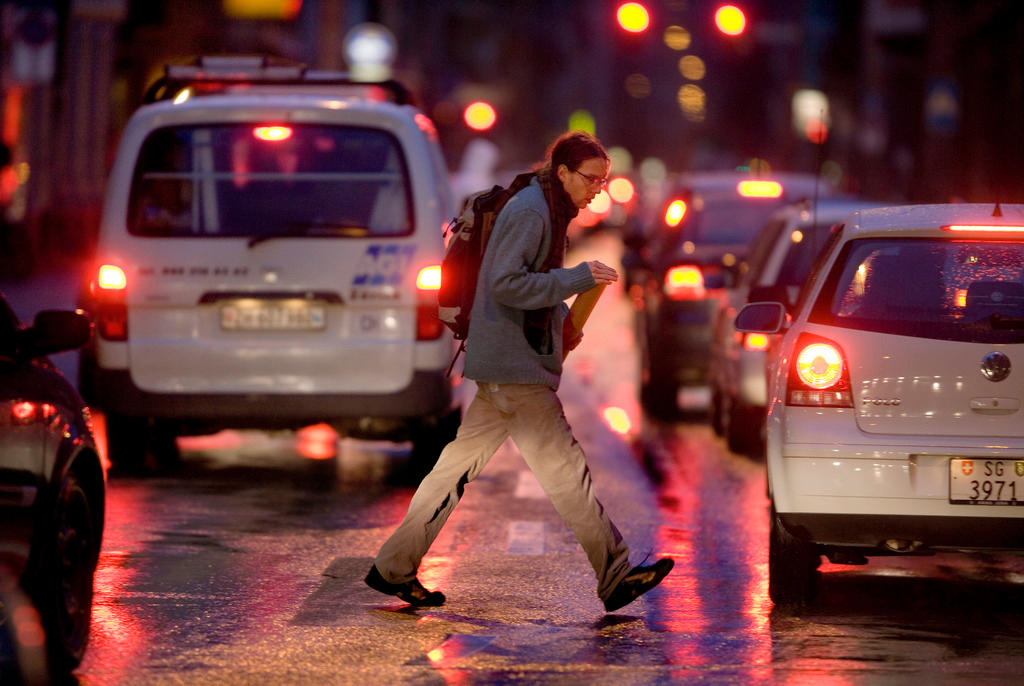
Half of Swiss population commutes half an hour to work

Nine out of ten employees in Switzerland – or four million people in total – commuted to work last year, most of them to another municipality, and most by car.
In 2017, the average one-way Swiss commute was 15 kilometres (9.3 miles) and took 30.6 minutes, reported the Federal Statistical OfficeExternal link on Tuesday. Some 71% of commuters travelled to another city or town, up from 59% in 1990. The cantons of Basel City and Zug attract the most commuters from other cantons.
More than half (52%) of commuters drove to work; 31% used public transport; 9% walked; 7% biked (including e-bikes); and 2% rode scooters or motorcycles.
+ Swiss take an average of 72 train trips per year
With 800,000 pursuing studies or training, students and apprentices aged 15 and up accounted for another category of commuter. On average, they spent 40 minutes travelling 21km each way in 2017.
Among students and trainees, 16% travelled by passenger car or school bus; 41% took the train and 26% took the tram or bus. About 8% walked, while 7% biked and another 2% rode motorised two-wheelers.

More
Working and commuting at the same time

In compliance with the JTI standards
More: SWI swissinfo.ch certified by the Journalism Trust Initiative






























You can find an overview of ongoing debates with our journalists here . Please join us!
If you want to start a conversation about a topic raised in this article or want to report factual errors, email us at english@swissinfo.ch.